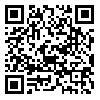Volume 7, Issue 1 (Continuously Updated 2024)
Func Disabil J 2024, 7(1): 0-0 |
Back to browse issues page
Download citation:
BibTeX | RIS | EndNote | Medlars | ProCite | Reference Manager | RefWorks
Send citation to:



BibTeX | RIS | EndNote | Medlars | ProCite | Reference Manager | RefWorks
Send citation to:
Shokri A, Mubaraki H, Kamali M. Investigating the Relationship between Emotion Regulation Strategies and Anxiety Caused by COVID-19 in Employees of Rehabilitation Centers. Func Disabil J 2024; 7 (1) : 284.1
URL: http://fdj.iums.ac.ir/article-1-241-en.html
URL: http://fdj.iums.ac.ir/article-1-241-en.html
1- Department of Rehabilitation Management, School of Rehabilitation Sciences, Iran University of Medical Sciences, Tehran, Iran.
2- Department of Rehabilitation Management, School of Rehabilitation Sciences, Iran University of Medical Sciences, Tehran, Iran. ,mobaraki.h@iums.ac.ir
2- Department of Rehabilitation Management, School of Rehabilitation Sciences, Iran University of Medical Sciences, Tehran, Iran. ,
Abstract: (1612 Views)
Background and Objectives: In the current situation, it is essential to determine the level of anxiety in medical and non-medical employees due to the pandemic. Therefore, this research aims to assess the relationship between corona anxiety, emotion regulation strategies, and stress tolerance among the staff of rehabilitation centers in Tehran Province, Iran.
Methods: This study was descriptive, cross-sectional, and correlational. The statistical population of the present study included the entire staff of rehabilitation centers served by the Welfare Organization of Tehran Province in 2022. Using simple random sampling, 10 rehabilitation centers were selected as study centers. Subsequently, 200 employees of these centers were selected and tested using Morgan’s sampling table (the male age of the participants was 31.5 years). The data collection instruments included the corona disease anxiety scale, the emotional distress tolerance questionnaire (2005), and the March emotional self-regulation strategies scale (2007). Data were analyzed by SPSS software, version 26.
Results: The results showed that the mean of corona anxiety was 18.94 out of a maximum of 54 and the proportion of psychological symptoms of corona anxiety was higher than physical symptoms. The highest score from the participant’s point of view from dimensions of distress tolerance was assigned to the subjective assessment of distress. The mean score for distress tolerance was 52.68 out of a maximum of 75 points and the mean score for employees’ emotion regulation strategies was 134.37 points, which shows that the use of emotional self-regulation strategies is strong. The results of the current research showed that corona anxiety decreases significantly by increasing distress tolerance, absorption of negative emotions, regulation of efforts to relieve distress and distress tolerance, and corona anxiety also decreases significantly. Also, with the increase in the level of emotion regulation strategies, the anxiety of corona decreases significantly. Distress tolerance showed a negative correlation with corona anxiety, and with the improvement of distress tolerance, corona anxiety decreased (P=0.014).
Conclusion: Based on the results, increasing and improving distress tolerance and emotional regulation strategies significantly reduced corona anxiety. Also, the experiences and work of experts with more work experience alongside the younger and less experienced forces and their cooperation prepared the ground to reduce the effects of corona anxiety, as well as to improve the level of stress tolerance and emotion regulation strategies of employees.
Methods: This study was descriptive, cross-sectional, and correlational. The statistical population of the present study included the entire staff of rehabilitation centers served by the Welfare Organization of Tehran Province in 2022. Using simple random sampling, 10 rehabilitation centers were selected as study centers. Subsequently, 200 employees of these centers were selected and tested using Morgan’s sampling table (the male age of the participants was 31.5 years). The data collection instruments included the corona disease anxiety scale, the emotional distress tolerance questionnaire (2005), and the March emotional self-regulation strategies scale (2007). Data were analyzed by SPSS software, version 26.
Results: The results showed that the mean of corona anxiety was 18.94 out of a maximum of 54 and the proportion of psychological symptoms of corona anxiety was higher than physical symptoms. The highest score from the participant’s point of view from dimensions of distress tolerance was assigned to the subjective assessment of distress. The mean score for distress tolerance was 52.68 out of a maximum of 75 points and the mean score for employees’ emotion regulation strategies was 134.37 points, which shows that the use of emotional self-regulation strategies is strong. The results of the current research showed that corona anxiety decreases significantly by increasing distress tolerance, absorption of negative emotions, regulation of efforts to relieve distress and distress tolerance, and corona anxiety also decreases significantly. Also, with the increase in the level of emotion regulation strategies, the anxiety of corona decreases significantly. Distress tolerance showed a negative correlation with corona anxiety, and with the improvement of distress tolerance, corona anxiety decreased (P=0.014).
Conclusion: Based on the results, increasing and improving distress tolerance and emotional regulation strategies significantly reduced corona anxiety. Also, the experiences and work of experts with more work experience alongside the younger and less experienced forces and their cooperation prepared the ground to reduce the effects of corona anxiety, as well as to improve the level of stress tolerance and emotion regulation strategies of employees.
Article number: 284.1
Keywords: Emotion regulation strategies, Corona anxiety, Distress tolerance, Social worker, Rehabilitation
Type of Study: Research |
Subject:
Professional education and practice
Received: 2024/01/8 | Accepted: 2024/03/17 | Published: 2024/03/21
Received: 2024/01/8 | Accepted: 2024/03/17 | Published: 2024/03/21








